The Rural Human Service (RHS) certificate program is designed to support adult Indigenous students with a refreshed educational experience. Many of my students have not been in any school for 10 to 30+ years. Many arrive admitting to apprehension and a lack of confidence. The classroom then is not a particularly safe environment for many and converting the classroom into a safe, culturally grounded, and deeply learning environment is part of the foundation of RHS.
One of the first activities students experience at the initial RHS intensive course is one I call “Feast of Learning.” Students are asked to consider a feast, a traditional gathering of a community involving a variety of foods. They are then asked to call out all the foods at a feast which generally include traditional/subsistence-based dishes such as dried fish, seal oil, bird soup, caribou, and moose to name a few. Also called out will be more ‘western’ dishes such as bread, tang, spaghetti, and rice. I note their responses on flip chart paper.
Each student is handed a paper plate and are then asked to write down from the master list all the foods they would include in their first plate of food at the feast. This generally elicits chuckles and sounds of enjoyment in considering their feast plate. Next, I ask students to help me circle those foods that are most subsistence/traditional based and those which are not. The discussion for this activity begins with a question to the students. I will ask, “What do you notice about the flip chart foods and the foods on your plate?” Students will note the blend of western and traditional foods and I ask them to consider how their own plate is constructed. Few will have only traditional or only western based foods. There will be a blend.
The next questions probe further. After seeing that no one has a plate with every single dish listed on the flip chart paper, I ask, “How did you decide what food to take and when your plate was complete?” Students generally answer that they don’t like all the foods or they would be too full to eat every single item, they would end up sick! Finally, the students are asked, “How is participation in the RHS college cohort similar to a ‘feast of learning?’ At this point there will be lively discussion. Students will point out that they might not like all the courses. If they try to learn too much too fast, they will not feel well. Issues of identity will emerge, that is, similar to a feast their learning will involve culturally based knowledge as well as more western based. Some students will use the feast analogy as a way to understand how, ultimately, they are in charge of what they “put on their plate.” When they are “full” they may step back a bit and rest. Through use of analogy, dialogue, and a real life culturally grounded experience as a springboard the cohort begins to form a more empowered ‘community of learners.’
Faculty could alter the activity to better fit their student context. For example, instead of “feast” they might select “Christmas/Birthday celebration” and students could call out all their favorite foods which are noted on the flip chart paper. Then they would use a paper plate to write only the foods they would select for their plate. Instead of noting “traditional and western” foods, faculty could jump to the questions such as:
- “Why doesn’t your plate have all of the listed foods?”
- “Are there foods listed you have never eaten but are interested in trying?”
- “How is this celebration plate like college?”
In this way, students can begin to conceptualize learning as under their control; it’s fun and unifying; and food is always a nice way of knitting together a community — in this case, a community of learners.
Diane McEachern
Diane McEachern is a professor with the Rural Human Services program at the UAF Kuskokwim Campus in Bethel, the lands of the Yup’ik, Cup’ik, and Athabascan people. Her doctoral research explored the teaching of social work content to Indigenous adult learners.

